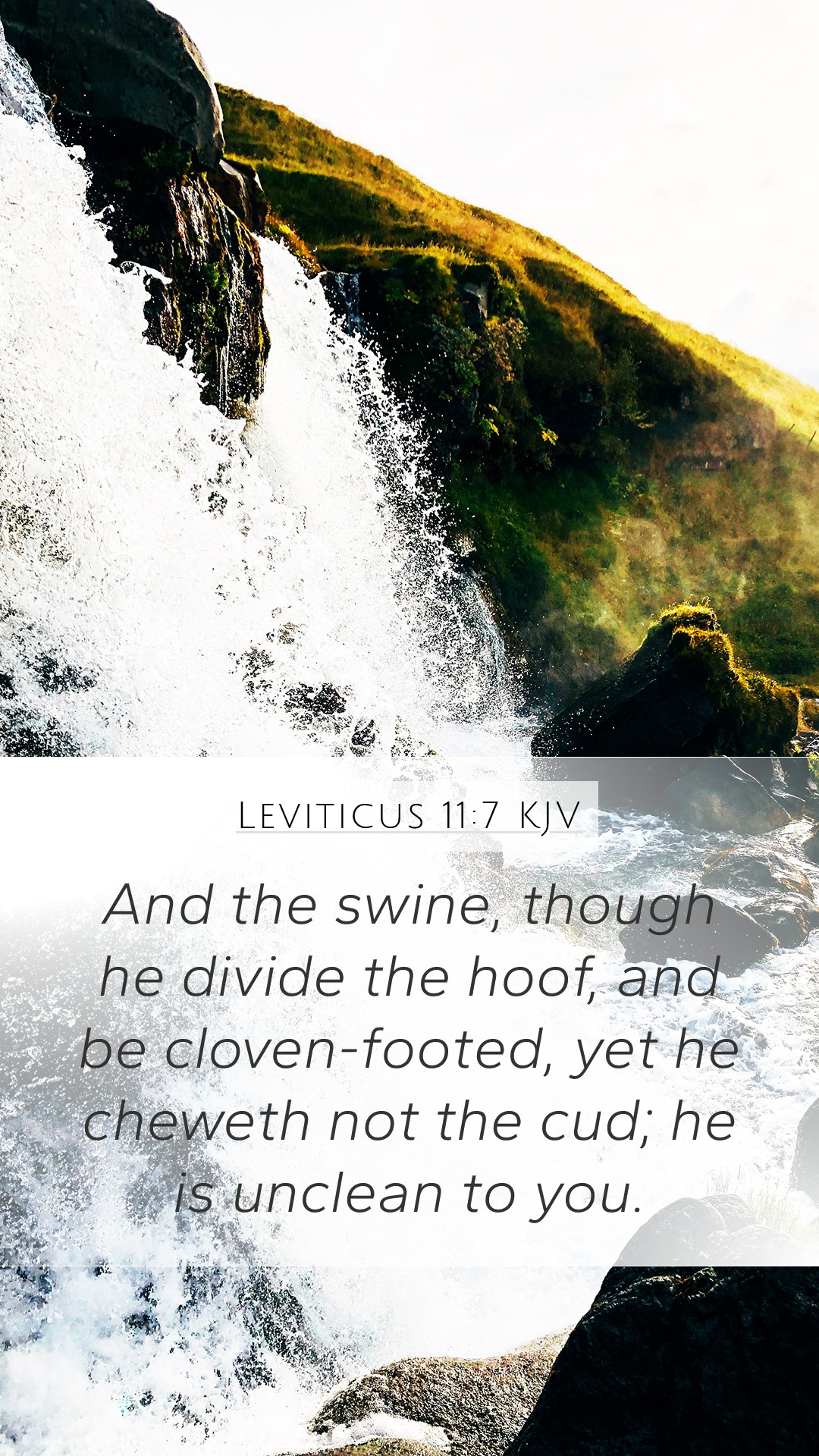Bible Verse Commentary on Leviticus 11:7
Leviticus 11:7 reads: “And the swine, though he divide the hoof, and be cloven-footed, yet he cheweth not the cud; he is unclean to you.” This verse offers critical insights into the dietary laws established for the Israelites, which reflect broader spiritual principles and the importance of holiness in their community.
Meaning of Leviticus 11:7
The significance of this verse lies primarily in its prescription against the consumption of swine. The Israelites were guided to maintain certain dietary restrictions, which not only promoted physical health, but also symbolized a deeper spiritual truth regarding purity and holiness.
Insights from Public Domain Commentaries
-
Matthew Henry's Commentary:
Henry notes that this division between clean and unclean animals is part of God's law to keep His people distinct from surrounding nations. He emphasizes that God's people are to be holy as He is holy, suggesting that the dietary laws served as reminders of their covenant relationship with Him.
-
Albert Barnes' Notes:
Barnes discusses how the pig, while having the appearance of being a clean animal due to its cloven hoof, does not meet the essential requirement of chewing the cud. This physical differentiation serves as a metaphor for spiritual discernment; not all that seems acceptable outwardly aligns with God's holiness. Barnes highlights that God’s regulations are not arbitrary but serve a divine purpose.
-
Adam Clarke's Commentary:
Clarke elaborates on the laws and their enforcement, stressing that the understanding of these dietary injunctions goes beyond mere physical restriction. He suggests that these laws were intended to promote a regular observance of divine command, fostering a mind attuned to God's will in every aspect of life.
Biblical Exegesis and Historical Context
Understanding the historical context of Leviticus 11:7 is crucial for grasping its full meaning. This chapter addresses the Israelites during their desert wanderings, providing them with guidelines that set them apart from the pagan cultures surrounding them. The criteria for clean and unclean animals offered a framework that echoed their covenant identity and divine calling.
Spiritual Application
When studying this verse, modern readers can ponder the significance of purity in their own lives. The principle that external appearances can be deceiving is relevant today; one may look holy or righteous, but true holiness involves aligning one’s heart and actions with God’s commands. This highlights the importance of integrity and authenticity in the spiritual journey.
Bible Study Insights
For those engaging in Bible study groups or online Bible study, Leviticus 11:7 can prompt discussions about:
- How do the laws in the Old Testament relate to our understanding of God's holiness?
- In what ways can contemporary believers apply the principles behind these dietary laws in their daily lives?
- What does it mean to be set apart for God in the modern age?
Related Bible Cross References
- Deuteronomy 14:8 - Further reiteration of the dietary laws.
- Isaiah 66:17 - Prophetic implication concerning unclean animals.
- Mark 7:18-19 - Jesus’ teaching on what defiles a person.
In conclusion, Leviticus 11:7 serves as a reminder of the importance of holiness and obedience to God's commands. It calls believers to reflect on their own lives, ensuring alignment with God's principles and fostering a commitment to living a life set apart for Him. Understanding such Bible verses through commentary and collective study enriches one's spiritual journey.


